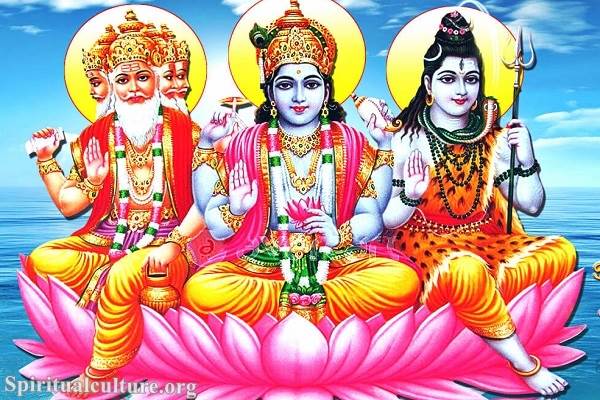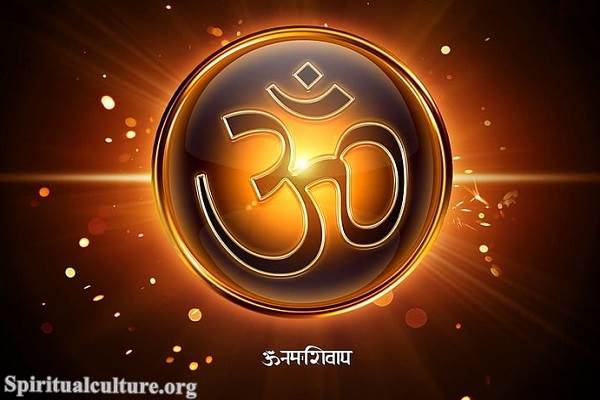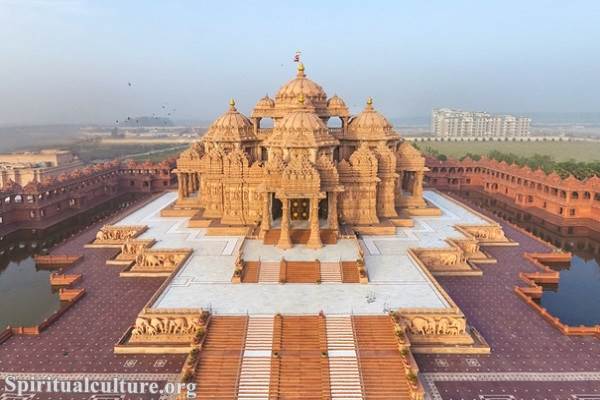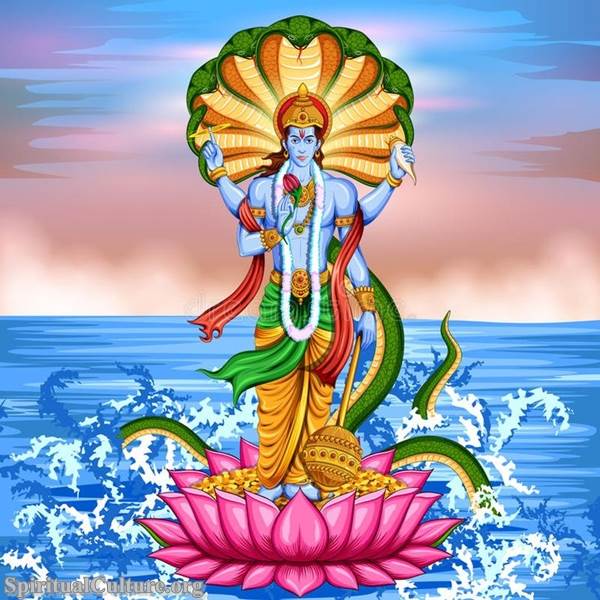The Hindu Trinity refers to the three main Hindu gods, who are considered to be the creator, preserver, and destroyer of the universe.
Brahma is the creator of the universe, Vishnu is the preserver of the universe, and Shiva is the destroyer of the universe. These three gods are revered as the Hindu trinity and symbolize the cycle of creation, preservation, and destruction in Hinduism.

Brahma in Hindu Trinity
Brahma is one of the major gods in Hinduism and is considered the creator of the universe. According to Hindu mythology, Brahma is responsible for the creation of the world, its beings, and everything in it. He is often depicted with four heads and four arms, symbolizing his ability to see and create in all directions. Brahma is revered as the god of creation and is worshipped on the Hindu festival of Pushya Nakshatra.
However, despite his importance as the creator of the universe, Brahma is not as widely worshipped as the other members of the Hindu Trinity, Vishnu, and Shiva. Some Hindu sects consider him to have a secondary role in the divine hierarchy. In Hinduism, it is believed that the universe goes through cycles of creation, preservation, and destruction, and Brahma, Vishnu, and Shiva represent these three aspects. Brahma represents the aspect of creation, Vishnu represents preservation, and Shiva represents destruction. Together, they form the Hindu Trinity and represent the three aspects of the divine in Hinduism.
Vishnu in Hindu Trinity
Vishnu is one of the major gods in Hinduism and is considered the preserver of the universe. According to Hindu mythology, Vishnu is responsible for preserving the balance and order of the universe and protecting it from harm. He is often depicted with four arms, holding symbols of power and protection. Vishnu is revered as the god of preservation and is worshipped on many Hindu festivals, including Janmashtami, which celebrates his birthday.
In Hinduism, it is believed that Vishnu has taken ten incarnations, or avatars, in order to restore balance and defeat evil whenever it threatens the universe. Some of his most famous avatars include Rama, Krishna, and Buddha. Vishnu is often depicted as a benevolent deity and is worshipped for his protection and guidance. He is one of the most widely worshipped gods in Hinduism and is revered by millions of devotees across India and the world.
Shiva in Hindu Trinity
Shiva is one of the major gods in Hinduism and is considered the destroyer of the universe. According to Hindu mythology, Shiva is responsible for bringing an end to the current cycle of creation and allowing for the creation of a new universe. He is often depicted with a third eye on his forehead, symbolizing his wisdom and knowledge, and with a serpent around his neck, symbolizing his mastery over death and destruction.
Shiva is revered as the god of destruction and renewal and is worshipped for his role in the cycle of birth and death. He is also associated with several other aspects of life, including yoga and asceticism, and is revered as a powerful spiritual teacher. Shiva is one of the most widely worshipped gods in Hinduism and is revered by millions of devotees across India and the world.
In Hinduism, Shiva is often worshipped along with his consort, the goddess Parvati, and their son, the elephant-headed god Ganesha. The worship of Shiva and his family is a central aspect of Hindu devotional life and is celebrated on several Hindu festivals, including Maha Shivaratri.




